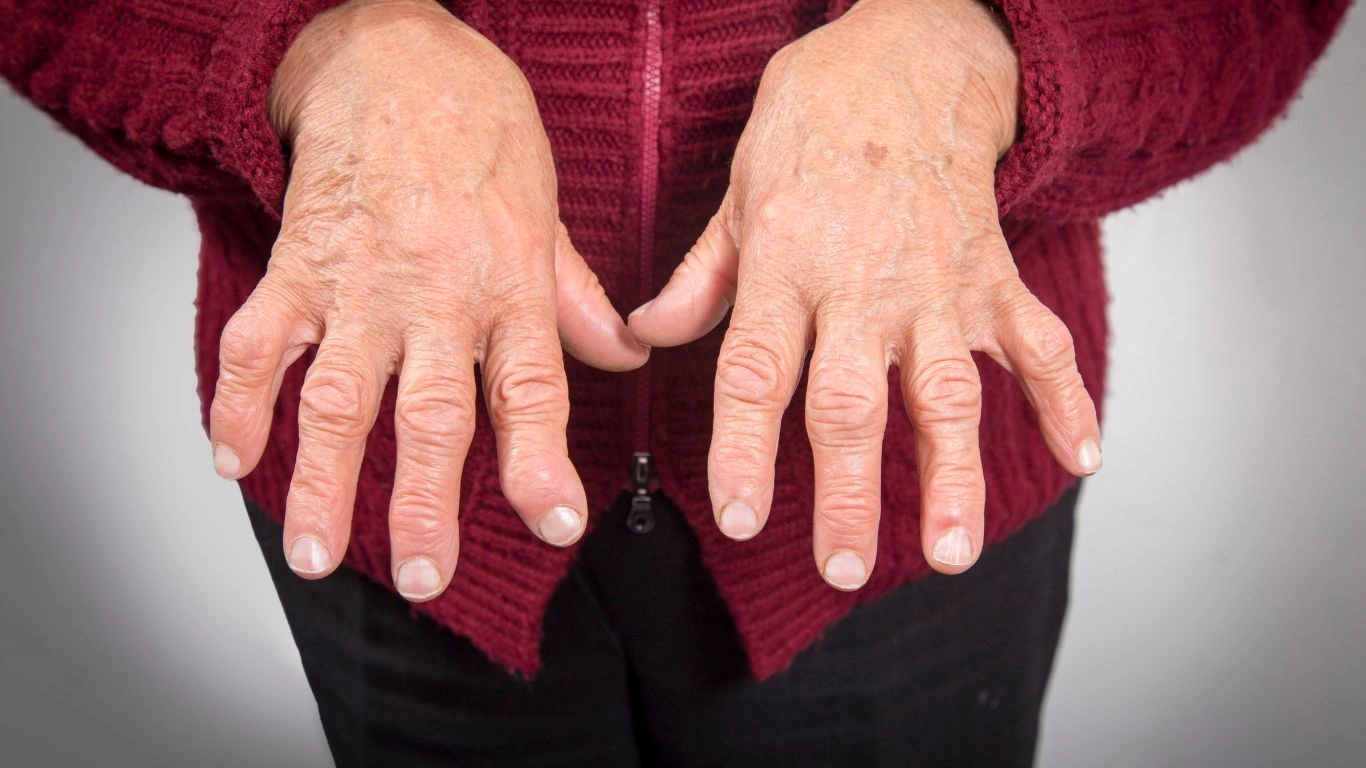Can Rheumatoid Arthritis Cause Chronic Fatigue Syndrome? Key Insights
As a Rheumatology Nurse Practitioner with years of hands-on experience, I’ve had the privilege of working with countless patients who struggle with the complexities of rheumatoid arthritis (RA). One of the most common questions I get from my patients, especially those dealing with the more debilitating symptoms, is: “Can rheumatoid arthritis cause chronic fatigue syndrome (CFS)?” It’s a valid concern, and in this article, I’ll walk you through everything you need to know about the connection between RA and chronic fatigue syndrome, based on my experience and knowledge from the field.
Understanding Rheumatoid Arthritis and Chronic Fatigue Syndrome
Rheumatoid arthritis (RA) is an autoimmune disease that causes inflammation in the joints, leading to pain, stiffness, and swelling. While RA primarily affects the joints, it can also impact other parts of the body, including organs, and cause systemic symptoms. Chronic fatigue syndrome (CFS), on the other hand, is a complex disorder characterized by persistent, unexplained fatigue that doesn’t improve with rest. It can significantly affect your quality of life, making even simple tasks feel impossible.
But here’s the thing—RA and CFS often seem to go hand in hand. If you’ve been diagnosed with RA, you might already know that fatigue is one of the most common and debilitating symptoms. But does this mean RA can directly cause CFS? Let’s break it down together.
Is Fatigue a Common Symptom of Rheumatoid Arthritis?
First off, it’s important to understand that fatigue is one of the hallmark symptoms of RA. In fact, it’s something I see in nearly every patient I treat for this condition. This isn’t the kind of tiredness you can shake off after a good night’s sleep. RA-related fatigue is persistent, often overwhelming, and can make it difficult to get through the day. If you’ve been living with RA for a while, you might feel like you’re constantly running on empty.
Now, why is this the case? Well, the chronic inflammation that RA causes is thought to contribute to fatigue. When your immune system is constantly attacking your body’s own tissues, your body goes into overdrive, working harder than it should. This leads to a range of symptoms, including fatigue. And it’s not just physical tiredness; it can also impact your mental clarity, focus, and overall energy levels, which makes it harder to function throughout the day.
But can this fatigue progress to the more severe and debilitating exhaustion seen in chronic fatigue syndrome? Let’s dive into that next.
Can Rheumatoid Arthritis Lead to Chronic Fatigue Syndrome?
The short answer is: yes, RA can contribute to the development of chronic fatigue syndrome. Many people living with RA report that their fatigue is not only persistent but also disabling—something that goes beyond the regular tiredness that comes with any chronic illness. This is why it’s so crucial to differentiate between the usual RA-related fatigue and the fatigue associated with CFS, though they often overlap.
Several factors may play a role in why people with RA may develop CFS:
- Inflammation: Chronic inflammation caused by RA can impact the body’s overall functioning, leading to the kind of fatigue seen in CFS. In fact, researchers believe that inflammation may be a common link between RA and CFS.
- Pain: The constant joint pain and stiffness that comes with RA can make it hard to rest properly, which in turn contributes to fatigue. When you’re in pain, your body has a harder time repairing itself during sleep.
- Sleep Disturbances: Many RA patients experience disrupted sleep due to pain, stiffness, and other symptoms. This lack of restorative sleep can lead to a vicious cycle of tiredness, where sleep problems and fatigue feed into each other.
- Immune System Dysregulation: Both RA and CFS involve abnormalities in the immune system, which may be a contributing factor in why people with RA are more prone to developing CFS.
It’s also worth noting that fatigue in RA can vary greatly from person to person. While some people may experience mild fatigue that doesn’t significantly interfere with their daily lives, others might find it completely overwhelming. For those who develop chronic fatigue syndrome, the fatigue becomes even more intense and can leave individuals feeling like they’re running on empty all the time.
The Role of Inflammation in Fatigue
To better understand why RA might lead to CFS, we need to explore the role of inflammation. In RA, the immune system mistakenly attacks the synovial lining of the joints, causing inflammation that can spread throughout the body. This inflammation is not just localized—it affects the entire system, leading to systemic symptoms, including fever, weight loss, and, yes, fatigue.
Researchers believe that this chronic low-level inflammation could be one of the reasons RA patients develop CFS. It’s like your body is constantly in fight-or-flight mode, and it simply wears you out. Over time, this ongoing inflammatory response can lead to the kind of severe fatigue seen in CFS, making it hard for you to get through your day without feeling like you need to sleep all the time.

Managing Fatigue in Rheumatoid Arthritis
If you’re dealing with fatigue as part of your RA diagnosis, it’s important to address it head-on. There are several strategies that can help you manage fatigue, improve your energy levels, and potentially prevent the progression to CFS. Here are a few approaches I often recommend to my patients:
- Pacing: Learning to pace yourself throughout the day is crucial. Don’t try to push through when you’re feeling fatigued. Instead, take breaks, prioritize tasks, and ask for help when needed. It’s all about balance.
- Medication: There are medications that can help control the inflammation caused by RA, which in turn can help reduce fatigue. Disease-modifying antirheumatic drugs (DMARDs) and biologics are commonly used to treat RA and may help ease fatigue by controlling inflammation.
- Sleep Hygiene: Ensure you’re practicing good sleep hygiene. Make sure your sleep environment is comfortable, avoid caffeine late in the day, and try to go to bed and wake up at the same time each day. Quality sleep can have a significant impact on how you feel.
- Physical Therapy: A physical therapist can work with you on exercises that improve joint mobility and strength, which can help reduce pain and stiffness—leading to less fatigue overall.

When to Seek Medical Help
If you’re finding that your fatigue is not improving despite your efforts to manage it, or if it’s severely affecting your quality of life, it’s important to talk to your doctor. In some cases, chronic fatigue syndrome may need to be considered as a separate diagnosis, and your healthcare provider may recommend additional tests or treatments to help manage it.

How to Differentiate Between RA Fatigue and Chronic Fatigue Syndrome
Now that we’ve established the link between RA and fatigue, it’s important to discuss how to differentiate between the fatigue that comes with rheumatoid arthritis and the more intense fatigue seen in chronic fatigue syndrome (CFS). This distinction is crucial because it can influence how you approach treatment and what kind of support you seek.
One of the things I often discuss with my patients is that while RA-related fatigue is overwhelming, it usually occurs alongside other symptoms like joint pain, swelling, and stiffness. Chronic fatigue syndrome, on the other hand, is often characterized by long-term fatigue that is disproportionately severe compared to any other symptoms you might experience. CFS doesn’t necessarily come with the typical joint pain or swelling seen in RA, though some overlap exists.
Another major difference lies in the impact on daily life. With CFS, the fatigue is so debilitating that it can make it nearly impossible to carry out routine tasks. In contrast, while RA fatigue is certainly disruptive, many people with RA are still able to function with proper management of their symptoms.
Common Symptoms of Chronic Fatigue Syndrome
When it comes to chronic fatigue syndrome, the fatigue is typically much more severe and persistent. Patients with CFS experience profound exhaustion that doesn’t improve with sleep or rest. I’ve seen patients who struggle to get out of bed for days at a time, and even small tasks like showering or making a meal can feel like monumental efforts.
Besides the intense fatigue, other symptoms that commonly accompany CFS include:
- Unrefreshing sleep: Even after a full night’s sleep, individuals with CFS often wake up feeling just as tired as when they went to bed.
- Memory and concentration problems: This is often referred to as “brain fog.” Patients find it difficult to focus, remember things, or complete tasks that require mental effort.
- Sore throat or swollen lymph nodes: These flu-like symptoms can occur without any obvious infection.
- Muscle and joint pain: While this may seem similar to RA, the pain associated with CFS is often widespread and not localized to the joints.
- Headaches: Chronic headaches or migraines are common in CFS patients.
If you are experiencing any of these additional symptoms alongside the overwhelming fatigue, it’s worth talking to your doctor about whether CFS may be a factor in your diagnosis. It’s possible to have both RA and CFS, though this is not always the case.

The Link Between Inflammation, Pain, and Chronic Fatigue
The inflammation caused by RA plays a key role in the development of fatigue. As I mentioned earlier, when your body is in a constant state of inflammation, it has to work overtime, leaving you feeling drained. But it’s not just the inflammation itself; it’s also the pain that comes with it.
Pain from swollen, stiff joints can prevent you from getting quality rest, which is essential for restoring your energy. As someone who has worked with many RA patients, I can tell you that sleep disruption is a major contributing factor to fatigue. If you’re waking up multiple times during the night due to pain or discomfort, it’s no surprise that you’ll feel tired during the day.
What’s more, the pain you experience doesn’t just affect your body—it can also affect your mental and emotional well-being. I’ve seen how the constant cycle of pain and fatigue can lead to frustration, anxiety, and even depression. It’s important to acknowledge how these emotional factors can contribute to the overall feeling of exhaustion that many RA patients experience. And for some, this emotional toll can further exacerbate the fatigue to the point where it mimics the severity seen in chronic fatigue syndrome.
Managing Inflammation to Combat Fatigue
In my experience, managing inflammation is one of the most effective ways to reduce fatigue in RA patients. By keeping inflammation under control, you can reduce the overall strain on your body and, in turn, reduce the fatigue you experience. Here are a few strategies that can help:
- Medication: Disease-modifying antirheumatic drugs (DMARDs), biologics, and nonsteroidal anti-inflammatory drugs (NSAIDs) are commonly prescribed to manage inflammation in RA. These medications can help reduce swelling, pain, and fatigue. In my practice, I’ve seen patients who experience significant improvements in their energy levels once their inflammation is better controlled.
- Exercise: While it might seem counterintuitive, regular, gentle exercise can actually help reduce inflammation and improve energy levels. Low-impact exercises like swimming, yoga, and walking can help keep your joints mobile and reduce stiffness, which in turn can lead to less pain and fatigue.
- Diet: Certain anti-inflammatory foods, like omega-3-rich fish, leafy greens, and turmeric, can help support your body’s natural ability to manage inflammation. A balanced diet can also improve overall health and energy levels.
It’s important to note that managing inflammation doesn’t just help with joint pain and swelling—it also helps alleviate the fatigue that comes with RA. And when you experience less pain and inflammation, you may find that you have more energy to take on daily tasks and improve your overall quality of life.

The Emotional Toll of RA and Fatigue
One thing I’ve learned over the years is that the emotional toll of RA-related fatigue can be just as debilitating as the physical symptoms. Dealing with chronic pain and exhaustion can leave you feeling defeated and isolated, and it’s easy to see how someone with RA might develop feelings of depression or anxiety. The constant cycle of pain, fatigue, and limited mobility can feel like it’s taking over your life, and it’s not uncommon for patients to feel mentally and emotionally drained.
It’s important to recognize that the mental and emotional impact of RA fatigue should not be ignored. In my practice, I often encourage patients to seek support from mental health professionals who specialize in chronic illness. Therapy, mindfulness practices, and even support groups can help you cope with the emotional weight of living with RA and the accompanying fatigue.
Seeking Support for Emotional Well-being
If you’re feeling emotionally drained by the fatigue that comes with RA, you’re not alone. There are resources available to help you manage your emotional health:
- Therapy: Cognitive-behavioral therapy (CBT) and other therapeutic modalities can help you manage negative thoughts, stress, and emotional pain.
- Support Groups: Connecting with others who understand what you’re going through can be incredibly comforting. Support groups, whether in person or online, offer a safe space to share your experiences and gain insight from others facing similar challenges.
- Mindfulness and Relaxation Techniques: Practices like deep breathing, meditation, and yoga can help reduce stress and improve mental clarity, which can ease some of the emotional burden of living with RA fatigue.

How Rheumatoid Arthritis Treatment Can Help Manage Fatigue
As a Rheumatology Nurse Practitioner, I’ve seen how RA treatment options can have a major impact not just on joint pain but also on fatigue. The fatigue that often comes with RA is not something that should be brushed aside—it deserves attention and management. While RA treatments are generally designed to control the disease’s progression and manage pain, they can also significantly improve energy levels and reduce fatigue. In this section, let’s dive into the different treatments available for RA and how they can help you manage the exhausting symptom of fatigue.
Disease-Modifying Antirheumatic Drugs (DMARDs)
One of the primary ways we manage RA is with Disease-Modifying Antirheumatic Drugs (DMARDs). These medications are designed to slow down the progression of RA and reduce the inflammation that causes pain and fatigue. In my experience, when patients adhere to DMARD treatment plans, they often experience noticeable improvements in their energy levels because the inflammation, which is a key driver of fatigue, is better controlled.
Traditional DMARDs, like methotrexate, hydroxychloroquine, and sulfasalazine, are commonly used in the early stages of RA. More recently, biologic DMARDs have emerged as an option for patients who do not respond well to traditional DMARDs. These medications, such as TNF inhibitors (e.g., Humira, Enbrel) and IL-6 inhibitors (e.g., Actemra), target specific pathways in the immune system that are responsible for RA-related inflammation.
By reducing inflammation, these treatments not only help manage joint pain but also reduce the fatigue caused by chronic immune system activity. In some cases, patients report feeling significantly more energized and less worn out once their RA is better controlled with DMARDs.

Biologic Therapies and Fatigue Relief
Biologic therapies, which are a type of advanced DMARD, have shown a lot of promise in reducing both joint pain and fatigue in RA patients. These medications are usually recommended for patients with moderate to severe RA that hasn’t responded well to traditional DMARDs. What makes biologics different is that they specifically target the inflammatory processes at the root of RA. I’ve seen many patients who’ve switched to biologic therapy experience a marked decrease in fatigue, along with reduced inflammation and joint damage.
Some common biologic treatments include:
- TNF inhibitors (e.g., Humira, Enbrel): These drugs block a substance called tumor necrosis factor (TNF) that plays a role in inflammation.
- Interleukin inhibitors (e.g., Actemra, Kineret): These medications target specific interleukins, which are proteins involved in inflammation.
- Janus kinase inhibitors (e.g., Xeljanz, Olumiant): These work by inhibiting the activity of specific enzymes involved in the inflammatory process.
Patients often report feeling a significant reduction in overall fatigue once they start biologic therapies, which is not surprising considering these medications are working to reduce the inflammation that’s causing the exhaustion. If you’re struggling with fatigue despite other treatments, biologics may be an option to consider.
Alternative Treatments and Lifestyle Changes to Combat Fatigue
Alongside conventional medications, there are several lifestyle changes and alternative treatments that can help reduce RA fatigue. In my practice, I’ve often seen patients experience improvements in energy levels when they incorporate holistic approaches into their treatment plan. These aren’t meant to replace your medications, but they can work synergistically to improve your overall well-being.
Exercise and Physical Therapy
It might sound counterintuitive to exercise when you’re already tired, but physical activity can actually help reduce fatigue over time. Gentle exercises such as walking, swimming, or yoga can improve joint function, reduce stiffness, and boost energy levels. Regular exercise has also been shown to improve sleep quality, which, as we’ve discussed, is crucial for managing fatigue.
Physical therapy is another important tool. A physical therapist can work with you to develop an exercise plan tailored to your specific needs, helping you improve your strength and flexibility while managing joint pain. I’ve seen many patients benefit from physical therapy, as it helps them maintain mobility and reduce fatigue by improving overall physical function.
Dietary Modifications
What you eat can play a role in how you feel. While there is no specific “RA diet,” a healthy and balanced diet can help manage inflammation and improve energy. In fact, certain foods are known for their anti-inflammatory properties. For example, omega-3 fatty acids (found in fatty fish like salmon, mackerel, and sardines) are known to reduce inflammation and may help alleviate some of the fatigue that comes with RA.
Similarly, incorporating more fruits and vegetables into your diet can help boost your immune system and provide the nutrients your body needs to fight off fatigue. It’s also worth avoiding foods that promote inflammation, such as processed foods, sugary snacks, and excess red meat.
Mindfulness, Stress Management, and Emotional Health
Living with RA can be emotionally taxing, and the constant pain and fatigue can take a toll on your mental health. In my experience, addressing the emotional aspects of living with a chronic illness is just as important as managing the physical symptoms. That’s why stress management techniques like mindfulness, meditation, and deep breathing exercises can be incredibly helpful in reducing fatigue and improving overall quality of life.
Stress and Fatigue: The Vicious Cycle
Stress can exacerbate both the pain and fatigue associated with RA. It triggers an inflammatory response in the body, which can make your symptoms worse. It can also lead to poor sleep, which we know only adds to fatigue. In addition, stress can negatively affect your mental health, leading to feelings of depression and anxiety, which, in turn, can make fatigue feel even more overwhelming.
Practicing mindfulness and meditation can help break this vicious cycle. By focusing on the present moment and learning to relax, you can reduce the negative effects of stress on your body and mind. Regularly engaging in mindfulness practices can not only reduce inflammation but also improve your mental clarity, which can help you conserve energy throughout the day.

References
Disclaimer
The information provided in this article is intended for educational purposes only and should not be considered as medical advice. Always consult with a healthcare provider before making any changes to your treatment plan or lifestyle. Every individual’s experience with rheumatoid arthritis and chronic fatigue syndrome is unique, and treatment should be personalized based on your specific needs and circumstances.

Tarra Nugroho is a dedicated Nurse Practitioner with a strong foundation in family and preventive care. She brings both compassion and clinical expertise to her practice, focusing on patient-centered care and health education. As a contributor to Healthusias.com, Tarra translates medical knowledge into clear, empowering articles on topics like women’s health, chronic disease management, and lifestyle medicine. Her mission is simple: help people feel seen, heard, and informed—both in the clinic and through the content she creates. When she’s not caring for patients, Tarra enjoys weekend hikes, plant-based cooking, and curling up with a good health podcast.







